UN Power Grab Faces Resistance From 11 Countries Refusing To Be Bulldozed
The UN's declaration on pandemic prevention, preparedness and response is "like a stick of dynamite ready to be exploded," Prof Boyle warned. “This is very dangerous."
Written by Shabnam Palesa Mohamed, WCH Steering Committee member
The United Nations is facing one of the worst scandals in its controversial history, caused by its brazen tendency to defy democratic principles and disrespect national sovereignty. This time, given significant socio-political developments, the world is paying attention.
During the latter part of September, the UN held its SDG Summit and its 78th General Assembly. At the top of its agenda for the 19th and 20th, was, inter alia, the adoption of a high level political declaration on pandemic prevention, preparedness, and response.
The declaration was due to be adopted via ‘silent procedure’: If a country’s delegate did not object to the declaration, they would be deemed to accept it in full. This silent procedure was a Covid-era tool that outlived its utility and is clearly a dangerous practice.
The PPPR declaration is being strongly criticised as text that is political theatre, without real commitments, except for the promise to hold another high-level meeting in 2026. During the member state comments session, many heads of state were glaringly absent.
“Regardless, acting as and for the UN’s general assembly, its 78th president Dennis Francis approved a ‘historic’ but non-binding political declaration on pandemic prevention, preparedness and response,” international renowned law professor Francis Boyle said. “This is very dangerous. We cannot underestimate its significance. It’s like a stick of dynamite ready to be exploded.”
A. What is the diplomatic scandal about?
Eleven countries took a justified stand on the attitudes and procedures around critical agenda items in high level meetings at the 78th UN General Assembly, including:
1. High Level Political Forum on Sustainable Development, 18 and 19 September
2. High-level meeting on pandemic prevention, preparedness and response, 20 September
3. High-level meeting on universal health coverage, 21 September
4. High-level meeting on the fight against tuberculosis, 22 September.
These countries include two from Africa: Belarus, Bolivia, Cuba, the Democratic People’s Republic of Korea, Eritrea, the Islamic Republic of Iran, Nicaragua, the Russian Federation, the Syrian Arab Republic, Venezuela, and Zimbabwe.
One of the key issues that lead to the revolt by these eleven countries is apparently that earlier drafts of the Agenda 2030 health and sustainable development declarations included language calling on countries to refrain “from promulgating and applying any unilateral, economic, financial or trade measures not in accordance with international law”. Unsurprisingly, this paragraph was summarily removed from the final drafts and opens up sanctions which have a devastating impact on health and sovereignty.
B. What is the critical letter by eleven countries about?
Dated 17 September 2023, the three page letter to the UN GA president Dennis Francis (Trinidad and Tobago) and UN secretary-general Antonio Guterres (Portugal), objected to unilateral coercive measures and other glaring issues in international law.
The eleven countries raised, in summary:
No consent, lack of transparency and illegal unilateral coercive measures
Unfair practices such as veto, lack of inclusion, absence of balance, neglect
Forced consensus, bulldozing, and ignoring repeated breaking of silence
Discrimination against LMIC’s, perpetrated through the United Nations
Opposition to any attempt that formally adopts draft outcome documents
Delegations call for a recall of the nature and legal standing of UN meetings
Countries reserve the right to take action regarding their objections
C. What was the response from the United Nations and World Health Organisation?
• Blatantly ignoring the letter to the UN, and lying to the public, the WHO Director-General Adhenom Tedros Ghebreyesus incorrectly said “As you know, this morning, the 193 Member States of the United Nations approved the political declaration on pandemic prevention, preparedness and response. The declaration is a strong signal from countries that they are committed to learning the lessons of the COVID-19 pandemic, and to strengthening the world’s defences against pandemics.”
• He continued “In the declaration approved today, Member States have demonstrated that even at this time of division and polarisation, it’s still possible for countries to come together to agree on a shared response to shared threats. It is that same spirit of collaboration that we urge countries to demonstrate as they continue their negotiations on the Pandemic Accord and the amendments to the International Health Regulations.”
• Violating international law, he said “The political declaration, approved by Mr Dennis Francis, President of the 78th United Nations General Assembly, and the result of negotiations under the able leadership of Ambassadors Gilad Erdan of Israel and Omar Hilale of Morocco, underscored the pivotal role played by WHO as the “directing and coordinating authority on international health,” and the need to “commit further to sustainable financing that provides adequate and predictable funding to the World Health Organization, which enables it to have the resources needed to fulfil its core functions.”
• Meanwhile, unperturbed by what member states delegates communicated days before, UN Secretary-General Antonio Guterres said, in a message delivered by Deputy Secretary-General Amina Mohamed (Britain-Nigeria): “By next year’s World Health Assembly in May, I urge all countries to deliver a strong, comprehensive pandemic accord, focused on equity; as well as amendments to strengthen the International Health Regulations. And I urge you to support the World Health Organization, including by honouring the commitment to increase assessed contributions to half of its budget, and supporting the proposed investment round.”
• Unconcerned with the diplomatic fallout and failing in his duty to abide by international law, Guterres continued to outline three key priorities: First, Sustainable Development Goals Stimulus (read debt slavery). Next, countering what it defines as misinformation - which will lead to the suppression of critical thinking and free speech. Third, responding to complex global shocks via a UN emergency platform - that will make national governments and the will of the people they serve irrelevant.
Francis Boyle, J.D., Ph.D., a bioweapons expert and professor of international law at the University of Illinois, who drafted the Biological Weapons Anti-Terrorism Act of 1989, said, on reading this article, “Right! This is a great Defeat for the Globalists. The International Court of Justice has ruled that some types of UN General Assembly Resolutions Adopted by Consensus can become Customary International Law, and the Globalists Lawyers know that. So from my perspective what happened was an Historic Defeat for the Globalists. Tedros and the WHO are trying to turn a pig’s ear into a silk purse. In fact, this was an historic failure. The Globalists tried and failed to get their Declaration adopted by Consensus by the UN General Assembly, thus preventing it from arguably becoming Customary International Law, which is what they intended to do in the first place. But they will try again.”
He continued, “The danger here is that this is a Statement by Heads of State and Heads of Government, either one of whom can bind their states under international law and all of whom together could arguably create customary international law. That is what the Drafters of this Statement intended. This is very dangerous. We cannot underestimate its significance. It’s like a stick of dynamite ready to be exploded. This is all part of the Globalists Strategy to create a Worldwide Totalitarian Medical and Scientific Police State under the guise of the WHO. Thanks. Then if the 11 vote this way against it, then that will prevent this Declaration being adopted by Consensus and thus arguably becoming part of customary international law, which is what those behind the Declaration intend.”
Financing the supranationals' ambitions - $500 billion per year, minimum
About $2 billion has already been collated for a new World Bank managed Pandemic Fund. It is said to be insufficient, compared to the amounts required, especially for debt-burdened countries to comply with UN and WHO expectations and improve their health systems and prepare hospitals, data surveillance systems and laboratory facilities to meet potential pandemic needs.
A Sustainable Development Goals “stimulus” package in addition to “deep” reforms to the international financial architecture is required, according to UN Deputy Secretary-General Amina Mohammed. “Many developing countries are drowning in debt,” Mohammed told the high level meeting, echoing views expressed at the UN's SDG Summit.
D. My Analysis
In my view, it is accurate to call events at UNGA 78 diplomatic fraud and an act of aggression. It is also accurate to have predicted months ago that the United Nations will be the real power driving the WHO’s ambitions, or substitute itself as a Trojan horse.
Global Threats Council – another One World Government Toolbox
"Critics have also expressed misgivings about the ability of WHO, representing politically weak health ministries, to oversee and enforce the kinds of tough, binding commitments that would be needed for effective pandemic response. Those concerns have been behind the push to make UN fora platforms for pandemic debate and decisions.
Advocates for more UN-centred action have proposed the creation of an independent pandemic governance mechanism in the office of the UN Secretary-General, and/or a UN Global Threats Council, to oversee the implementation of any pandemic accord approved by WHO member states.
“I continue to believe that action at the head of state and government level is so needed to help break the cycle of panic and neglect, which sets in around pandemics and to sustain political momentum around preparedness and response,” said Clark, who has called for the creation of a UN-hosted Global Threats Council. “And then on accountability. independent monitoring of country preparedness is needed to guarantee our mutual assurance, compliance and accountability with international agreements.”
Juan Manuel Santos, former President of Colombia and a member of The Elders, believes that the UN may be the better forum as “pandemic preparedness encompasses far more than health”. Santos told a UN side meeting on Tuesday hosted by the Pandemic Action Network (PAN) that if the pandemic accord negotiations are still “mired in confusion” by the time the WHO Intergovernmental Negotiating Body (INB) meets for the seventh time later this year, “someone has to say, enough, we need to shift it back to New York.”
The united front built by these eleven countries, with at least 77 other countries also raising objections, as stated in the letter, has cataclysmic implications for the United Nations, far too long a mechanism for corporate funded colonialism and violent ‘peace-keeping’.
I am reminded of the trailblazing stand that the 47 nation African bloc took at the World Health Organisation’s World Health Assembly 75 last year, where they raised objections to controversial International Health Regulation amendments, on the basis that they were rushed, and that they threaten national sovereignty - the WHO often denies any threat.
Sanctions: inhumane unilateral coercive measures impacting health and sovereignty
Seismic shifts in geopolitics are leading to so-called LMICS (low to middle income countries) or EMDC’s (emerging and developing countries) to consider their cooperation options at a national, regional and inter-regional level. Emerging countries represent 80 percent of the world’s population, while billionaires own more wealth than the majority of their fellow citizens, and corporations can own more than the GDP of countries.
The threat of sanctions through the United Nations, influenced partly by the World Health Organisation as detailed in my July article, is one these countries have a lived experience of, and which seems to waning in its overall fear factor, evidenced by multiple revolts.
The latest report of the Report of the Special Rapporteur on the negative impact of unilateral coercive measures on the enjoyment of human rights clearly says:
“Unilateral sanctions and over-compliance have a detrimental impact on implementation of all aspects of the right to health of all people in the countries under sanctions, including access to adequate medicine, healthcare facilities, medical equipment, access to qualified medical assistance, prevention and control of deceases, scarcity of health professionals, access to health facilities, training and access to up-to-date scientific knowledge, technologies, research, exchange of good practices.”
The UN and WHO have gone too far in their diabolical attempts to engineer a one world government. In weeks and months ahead, I anticipate more countries joining this coalition and asking themselves why they should remain members of the United Nations and the World Health Organisation. They will have growing support from their peoples, desperate to avoid further indignity, discrimination, exclusion, sanctions, lockdowns, censorship, coerced vaccines, digital ID’s, CBDC’s, and the erasure of the sovereignty we value.
This article was written by Shabnam Palesa Mohamed and republished from childrenshealthdefense.co.za.
About the Author
Shabnam Palesa Mohamed is an award-winning activist, journalist, lawyer, mediator, analyst and strategist with the combined experience of over 20 years. Based in South Africa, She serves as executive director and chapter coordinator of Children’s Health Defense Africa. She also serves in the Steering Committee of World Council for Health.
Follow Shabnam on Substack
Please help support our work!
If you find value in this Substack and have the means, please consider making a donation to support the World Council for Health. Thank you.
Can’t donate but would like to contribute? We’re always looking for volunteers, so get in touch!




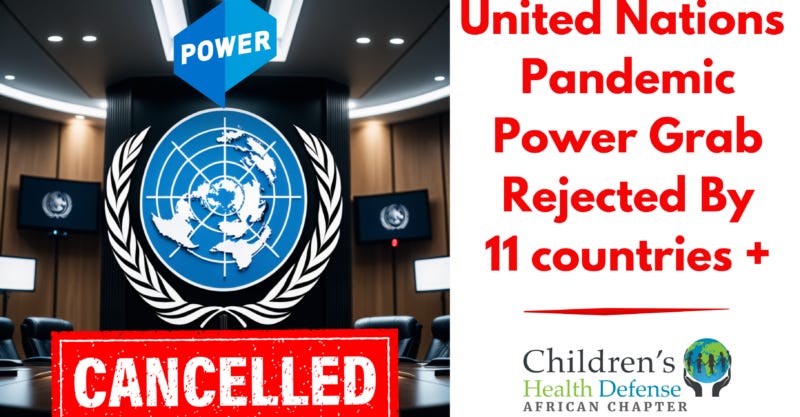
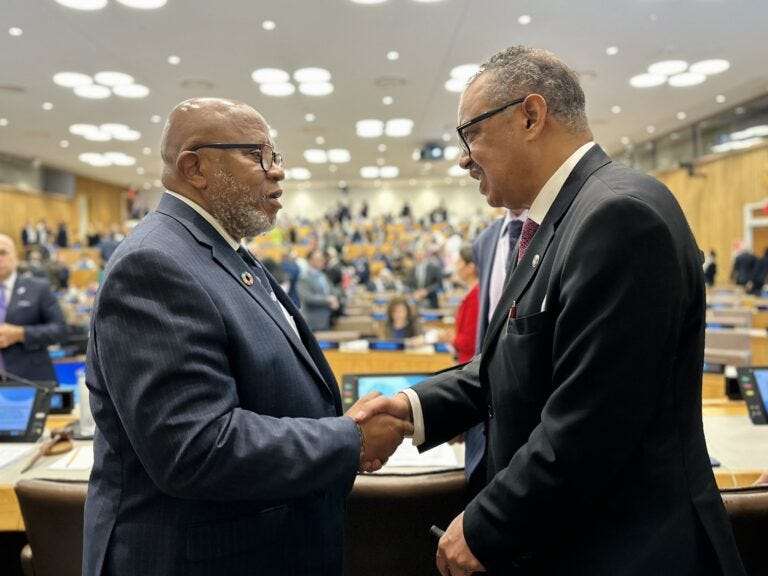
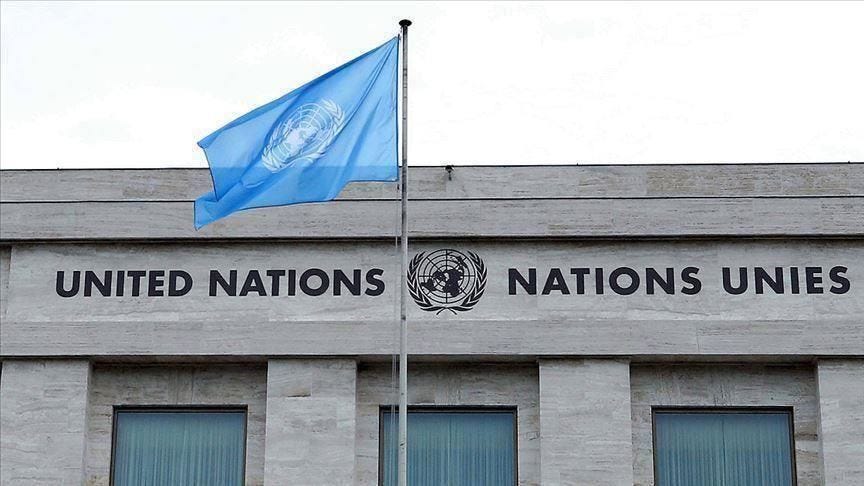
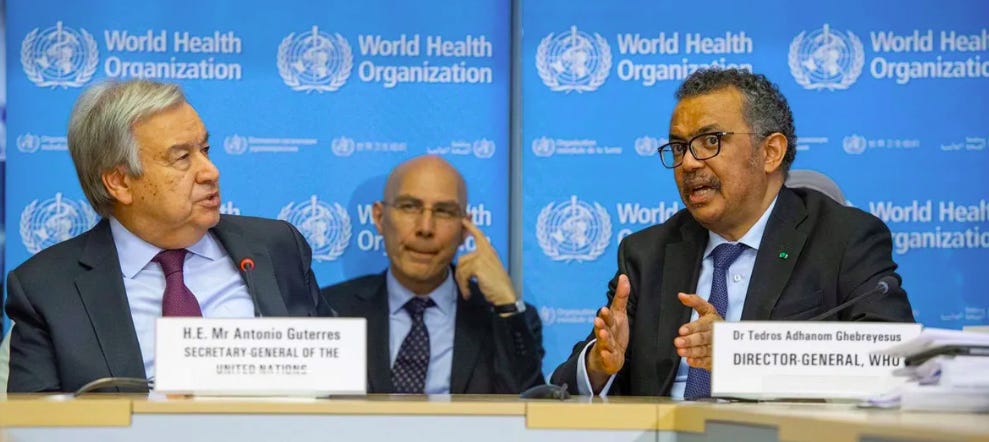
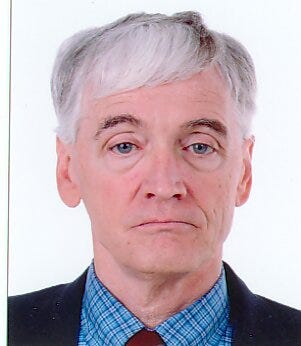
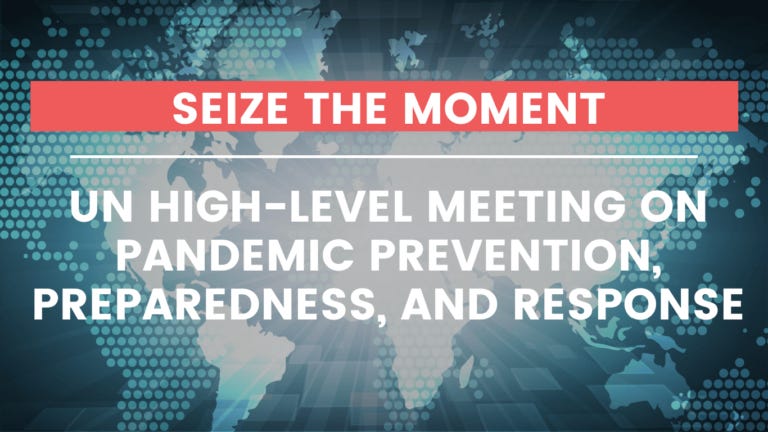

Thank you : ) xx oo.
pandemic prevention, preparedness and response=
Power, pandemics, profit, and command